I want to be the connecting link between the fishing industry and the dining table. With this thought, I started planning for the “Himeshima Fish Filleting Class,” and later, as a culinary researcher, Shoko Sato energetically initiated other projects like “Itoshima Children’s Cooking Classes” and “Itoshima Harvest Cooking Classes.” Respect for her grandfather, who was a fisherman in Itoshima City’s Himeshima, is always in her heart, and it seems to be a source of courage and strength.
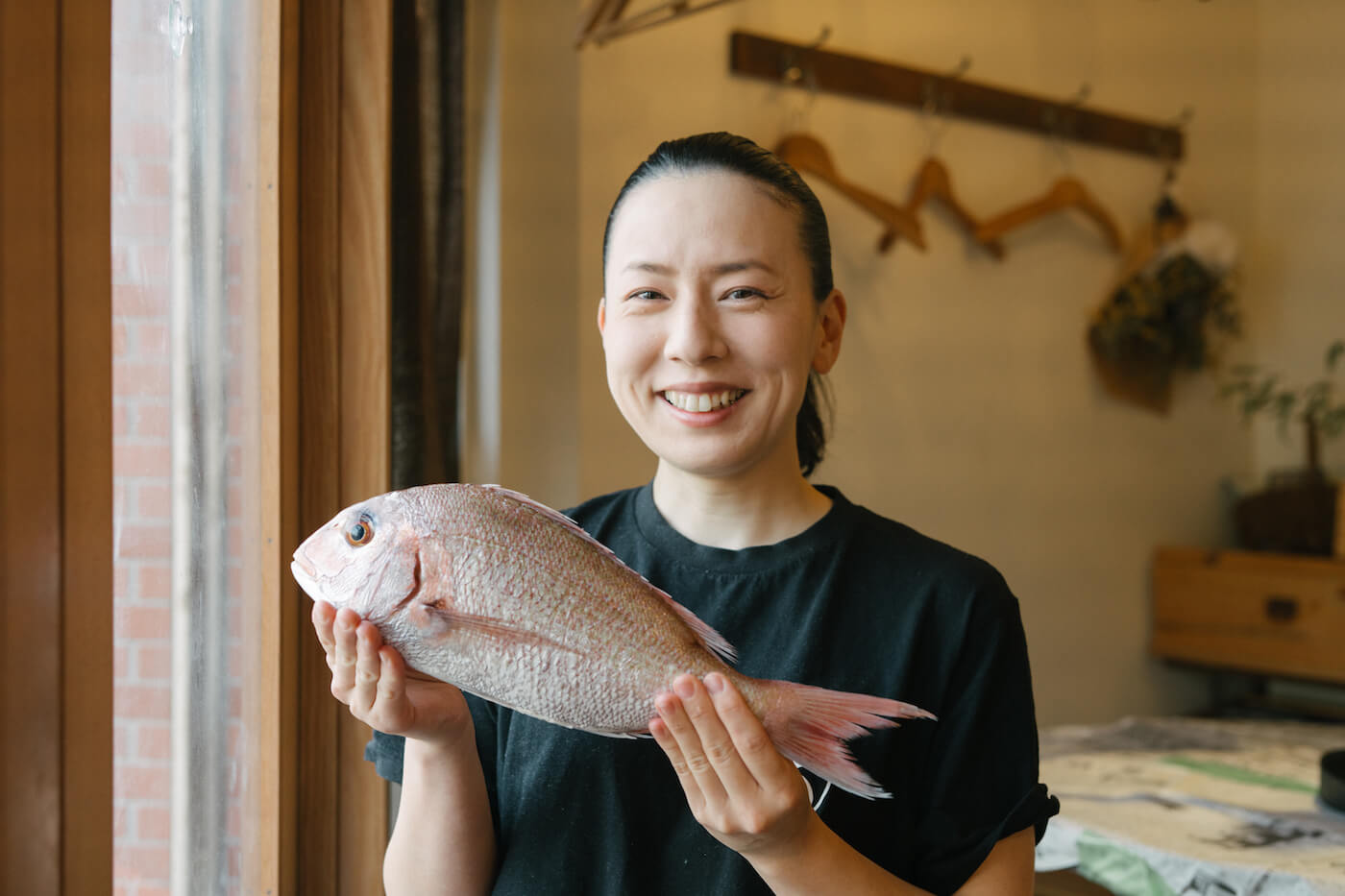
Why did you become a culinary researcher?
My initial motivation was simply that I was a “glutton” (laughs). I went to a university related to nutrition and became a cooking instructor after graduating. But there was a time when I couldn’t continue working due to overwork and interpersonal problems. There was a sudden moment when I had to step away from cooking, causing inconvenience to those around me.
“I never want to cook again!” My heart was that shattered. I was around the age of 29 at that time. Around the same time, my grandfather in Himeshima became sick and needed to be cared for at home, so I went there to nurse him. I was able to live with my grandfather, who remained an active fisherman until his death, making salted wakame and catching sea urchins and abalones.
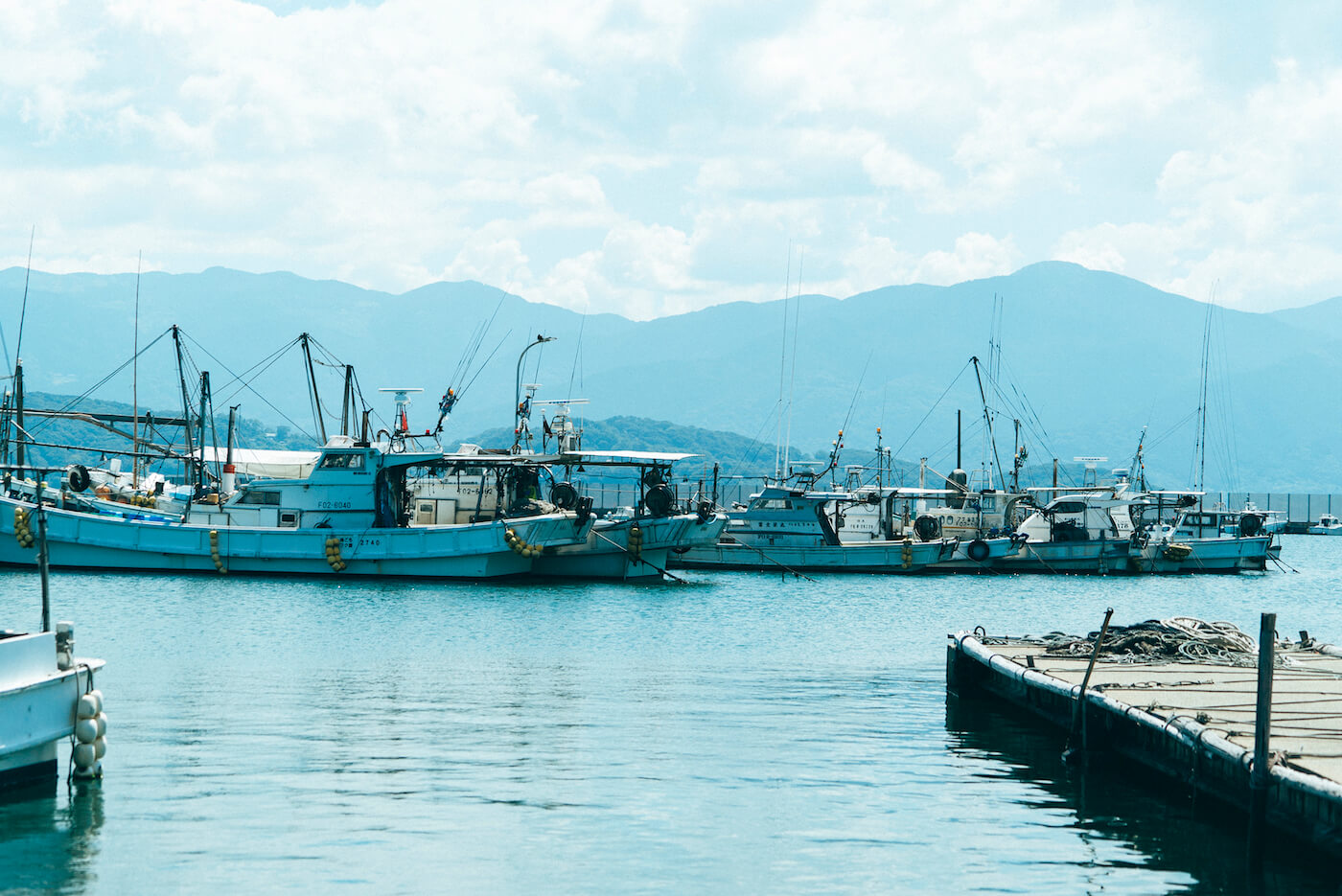
The last month was hard, but looking back, I realized how luxurious our days were, with my grandfather catching fish in the beautiful sea in front of us, cooking it with my grandmother, and the three of us sharing meals. From a young age, I often visited Himeshima, and the time spent with my grandparents nourished my heart. Eventually, this sense of happiness guided me back to cooking. The desire to pass on this richness to the next generation, to bridge the gap between fishing and dining, became clear.
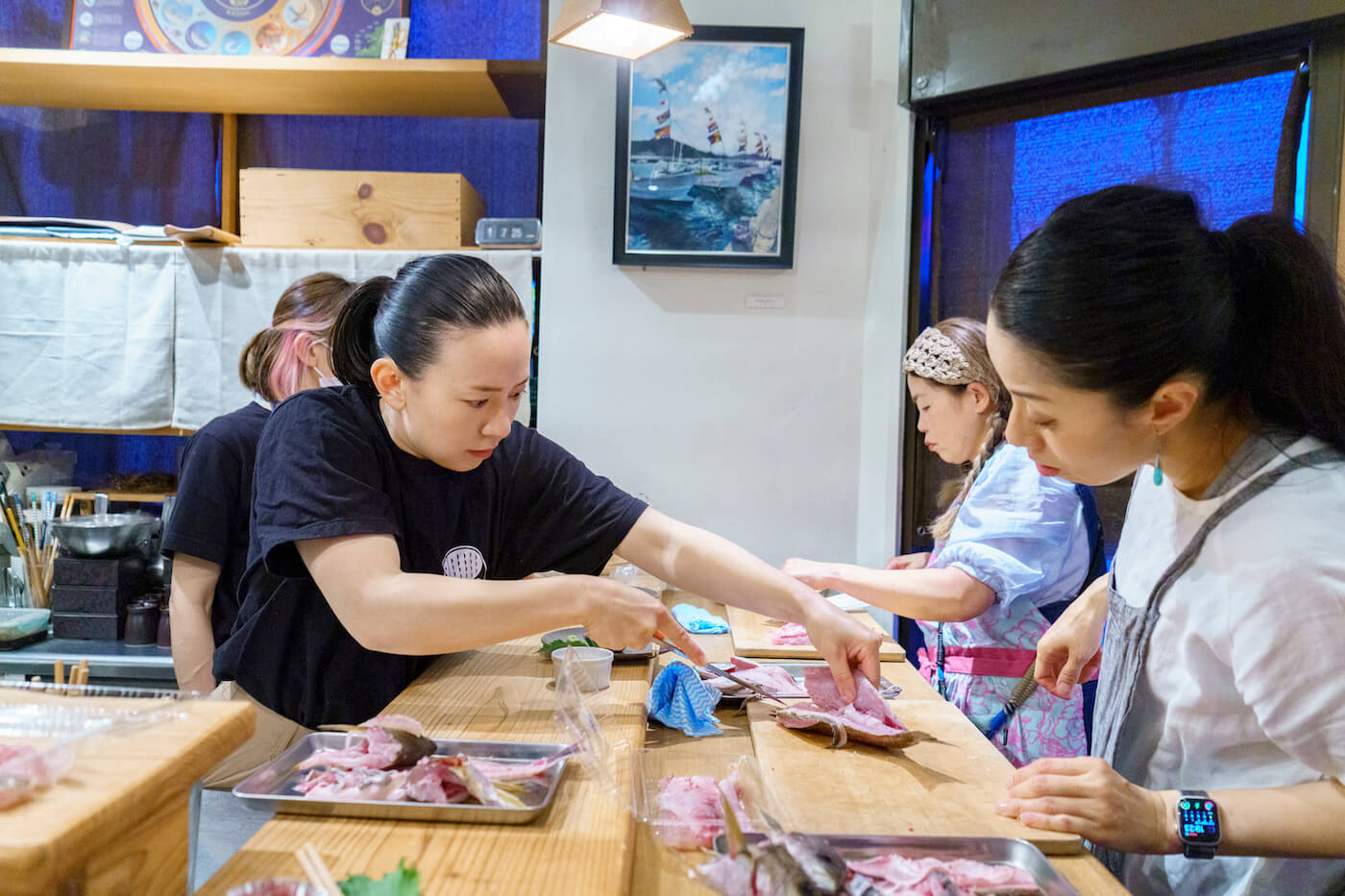
Looking back on 7 years since starting your own business, how do you feel?
It has gone by in a flash! Naturally, I had no work at first, so I started the “Himeshima Fish Filleting Class” myself. It’s a plan where people come to the island by boat and experience the fishing village. Recently, children’s participation has increased. Even children who didn’t eat fish have come to like it through cooking it themselves!
And the long-anticipated plan of “After-School Children’s Cooking Classes” became a reality two years ago. Using a community center adjacent to the elementary school, children cook after school and take their dishes home for dinner.
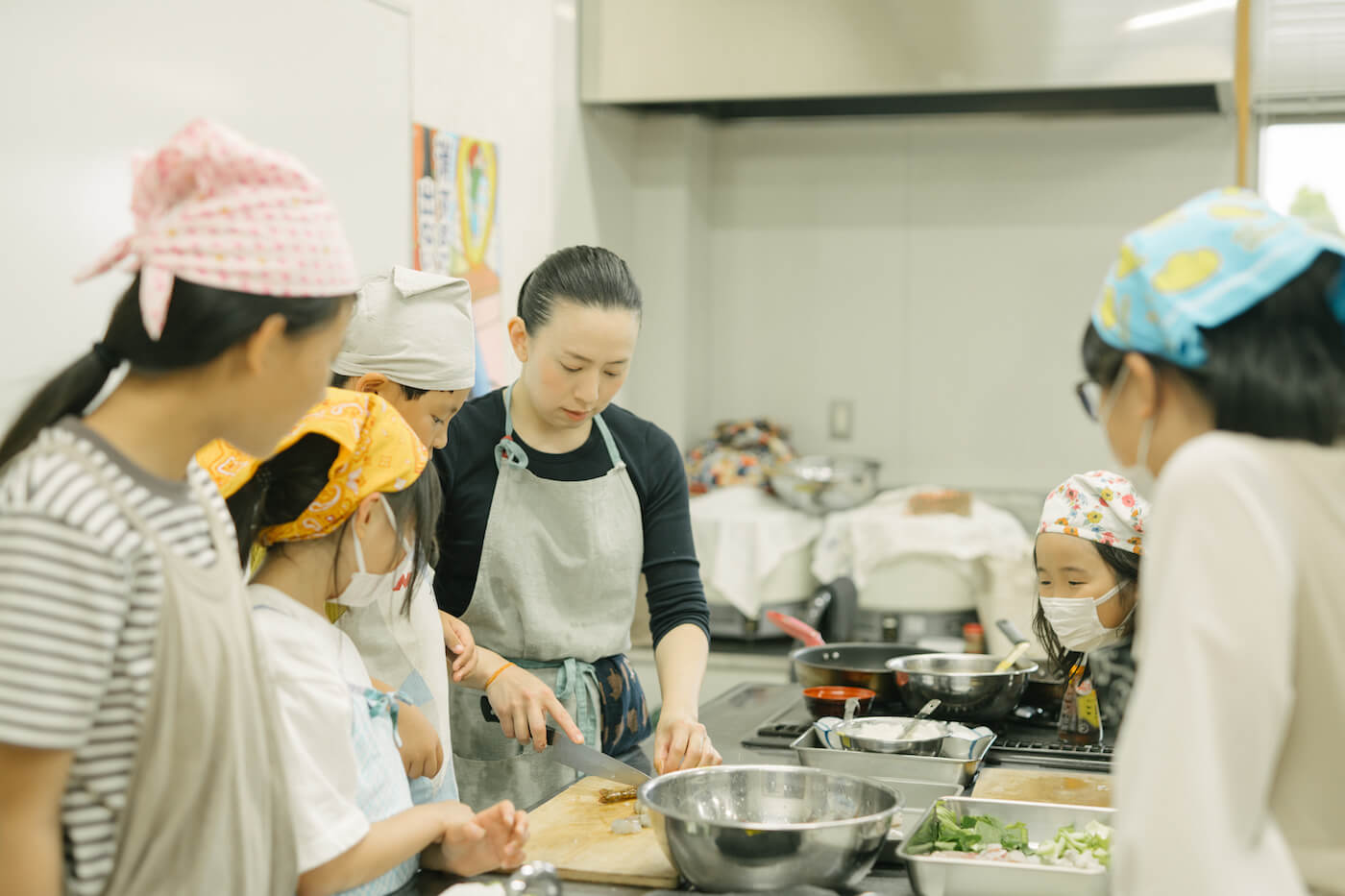
Born and raised in Itoshima, what impression does your hometown give you?
As a child, I took the abundance of locally-sourced ingredients and nature for granted. I didn’t feel anything special growing up. I attended high school in Fukuoka City after graduating, and I remember thinking, “The Itoshima dialect is different,” and “Itoshima is a bit rural” (laughs).
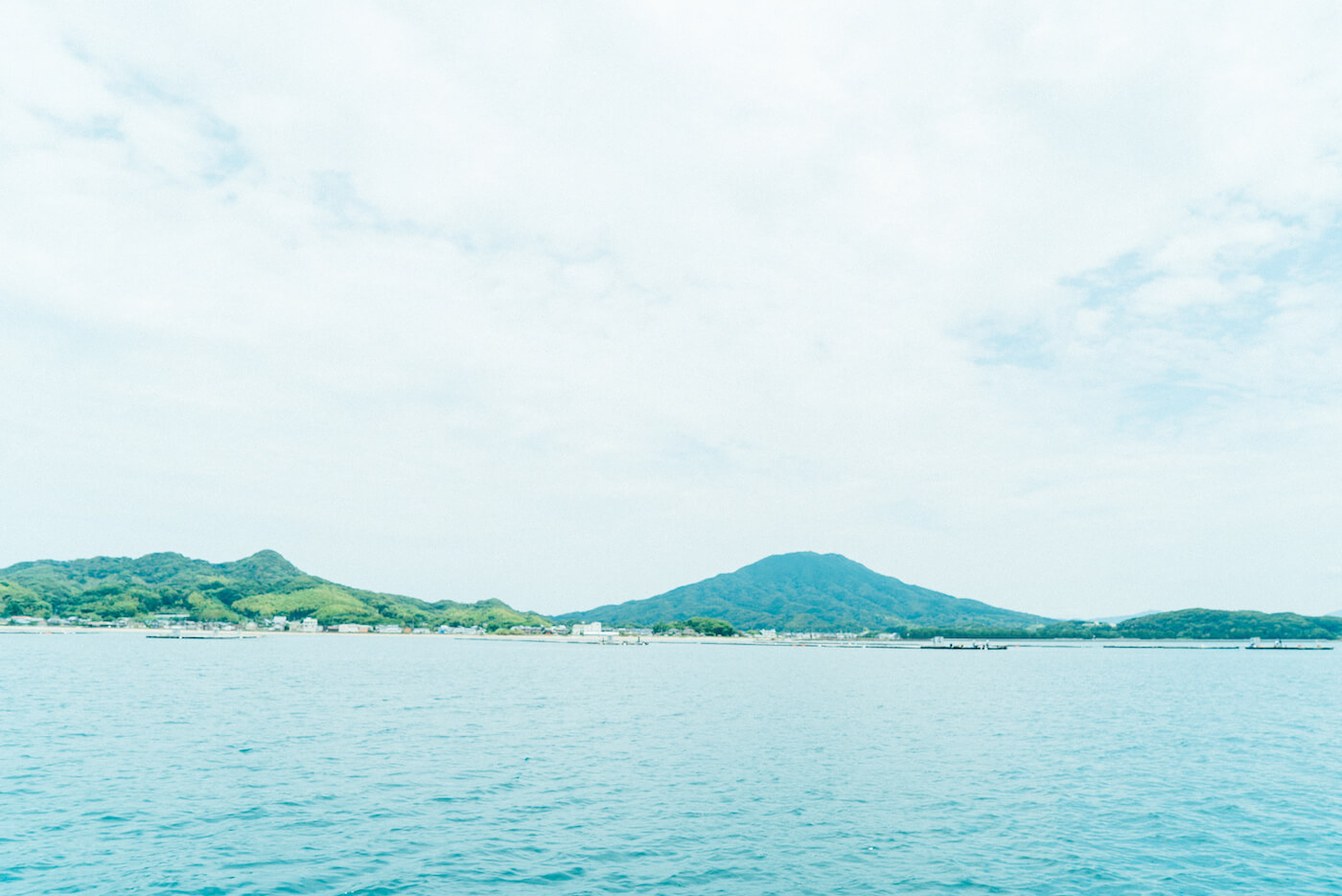
But what made me think “Wow!?” was about 10 or so years ago when I was a cooking instructor. People started saying, “Itoshima is a nice place!” The Itoshima brand became nationally recognized, and I remember being surprised by its soaring reputation.
Now, I can work as a culinary researcher in Itoshima thanks to the producers who have pursued better things across generations. I feel truly grateful.
You value interaction with those involved in the fishing industry, don’t you?
In Itoshima, there are fishermen, fishery cooperative officials, restaurants, and retailers striving to enhance the value of local fish. Working with them in this environment is very enjoyable. Through these interactions, I always keep an antenna out for what’s happening in the fishing scene.
People often say, “Itoshima’s fish are great,” but the fact that fishermen’s lives are tough is true. The decrease in catch, species, and people eating fish — whether the fish now on sale will be there in 5 years is uncertain. I want to be a little help through cooking to hand over Itoshima’s richness to the next generation.
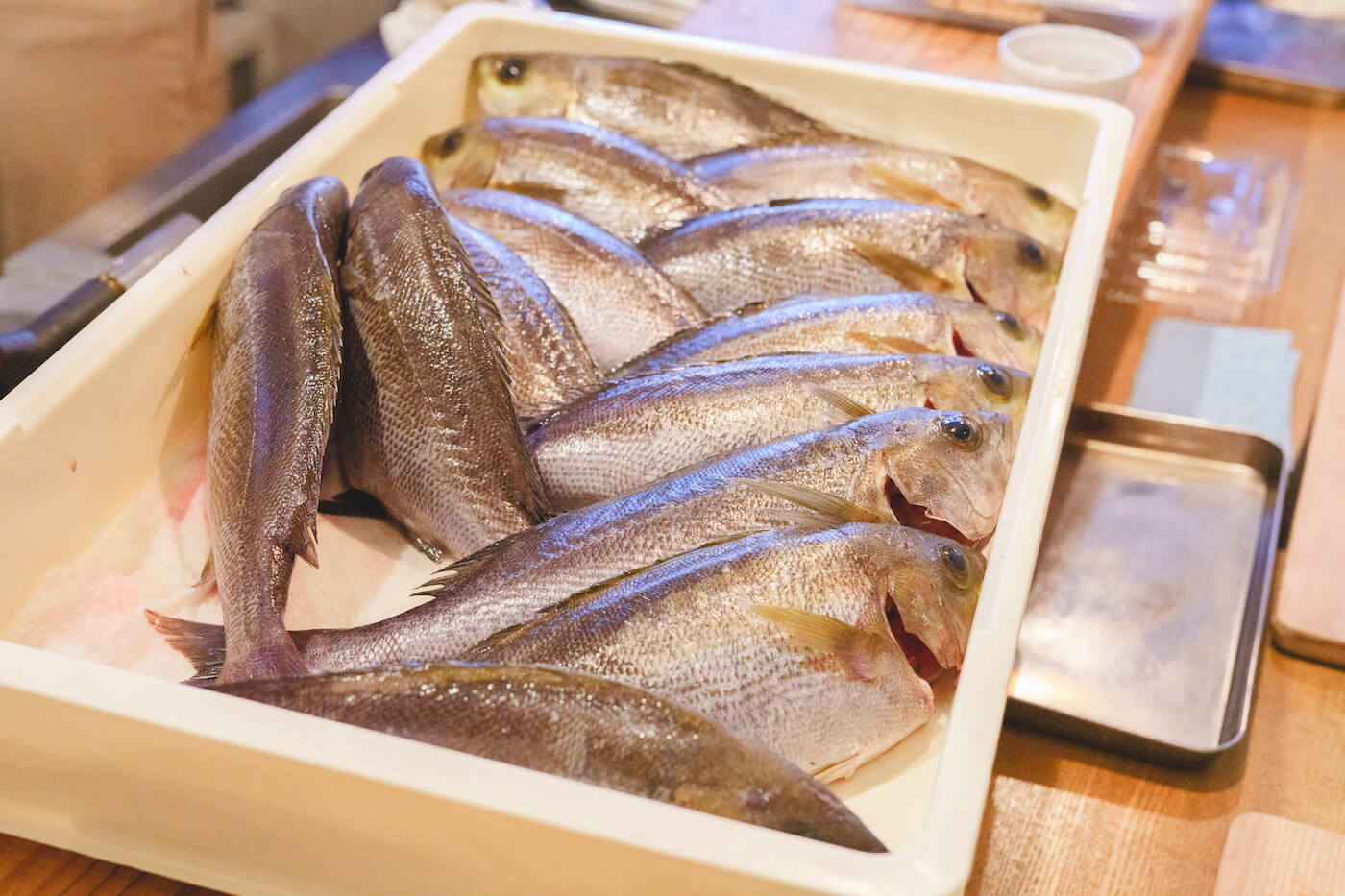
What are your dreams for the future?
My favorite quote is from former professional baseball manager Katsuya Nomura: “Third-rate leaves money, second-rate leaves work, first-rate leaves people.” Having found my mission by watching my grandfather’s back, I fantasize that if someone among the children I interact with chooses to value their hometown or the sea, it would be fantastic. However, I don’t usually mention this, so the children don’t feel pressured (laughs).
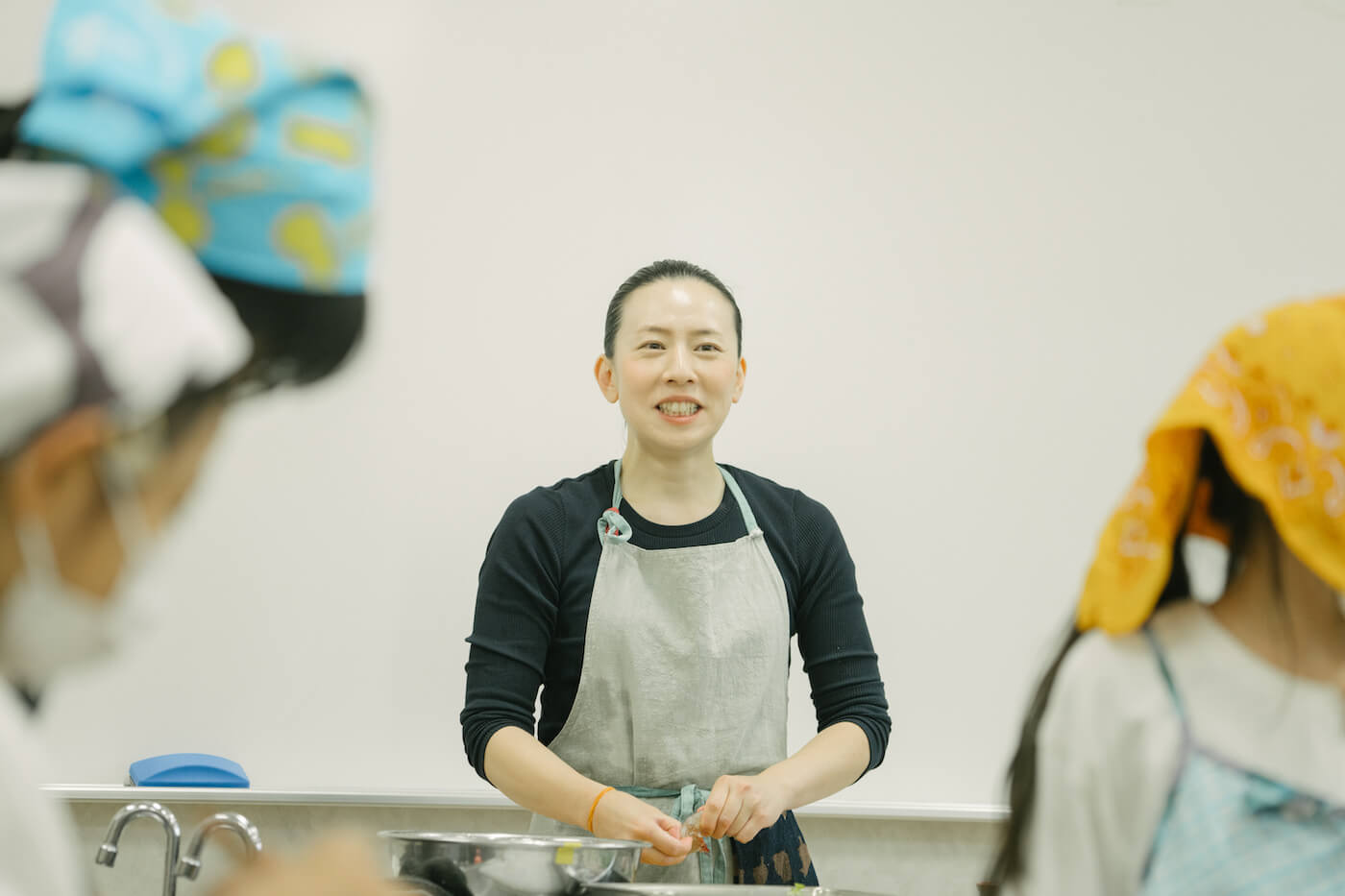
You always have thoughts of your grandfather in your heart, don’t you?
It’s strange, but I feel like he’s always watching over me. That’s why I have confidence that I can take on various challenges and succeed. Through cooking, I want to nurture the people of the future. The ability to see beyond ingredients, the power to overcome difficulties — I feel there’s so much I can convey. It may eventually turn into a way to repay my hometown and grandfather. That’s why I want to continue cooking classes for life!
▷Itoshima Children’s Cooking Classes
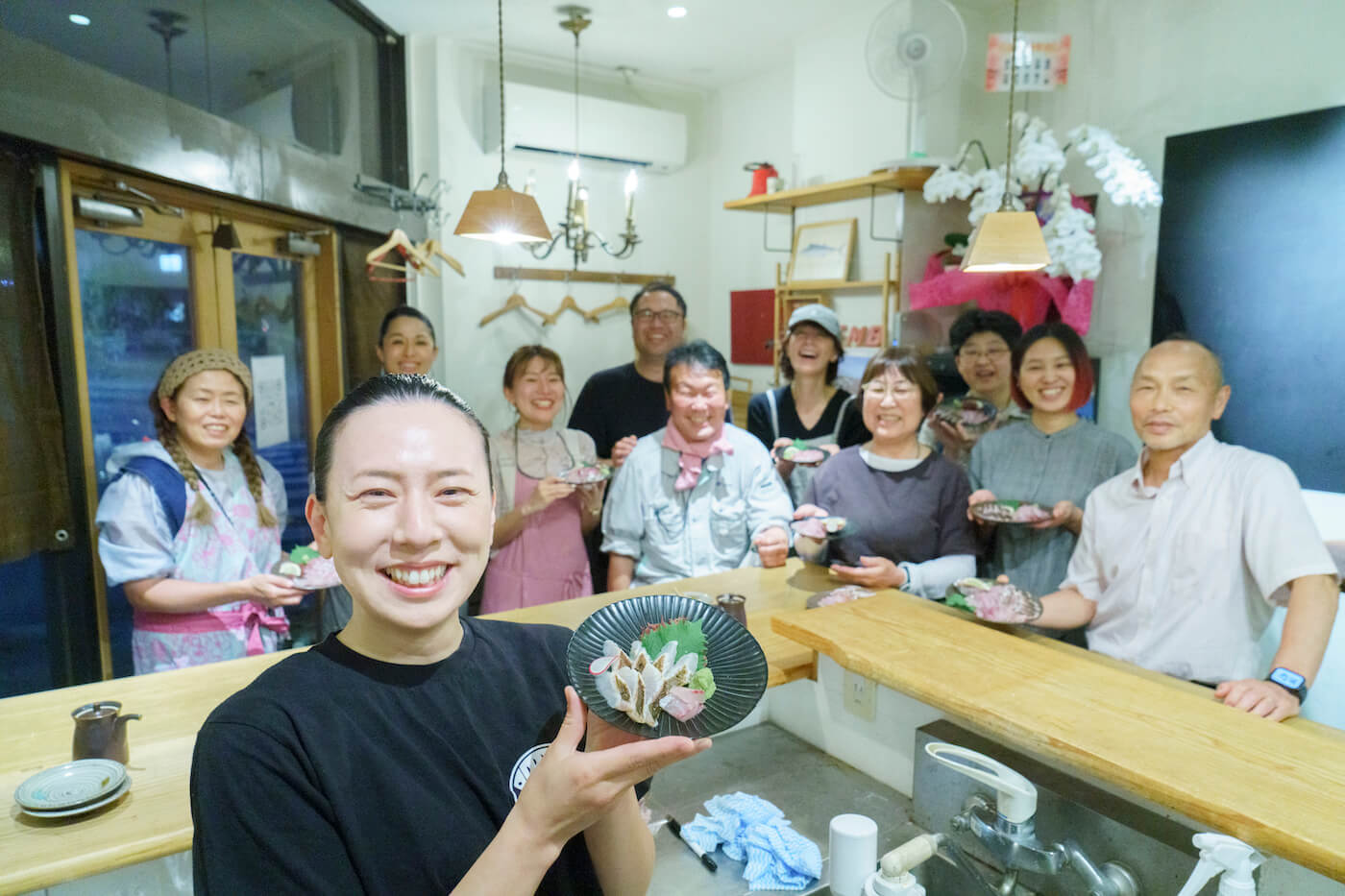
Writer’s Comment:
I visited the “Itoshima Children’s Cooking Class” held at the Harukaze Community Center in Itoshima City. The main dish of the day was “seafood chili.” With her bright and familiar voice, Ms. Sato skillfully guided the lively children. She seemed like the mother of a large family, with her love for children radiating. I could clearly envision Shoko, even as a grandmother, surrounded by many children in her cooking classes.
Interview & text by Leyla / Photography by Seiji Watanabe / Edited by: Emiko Szasz








